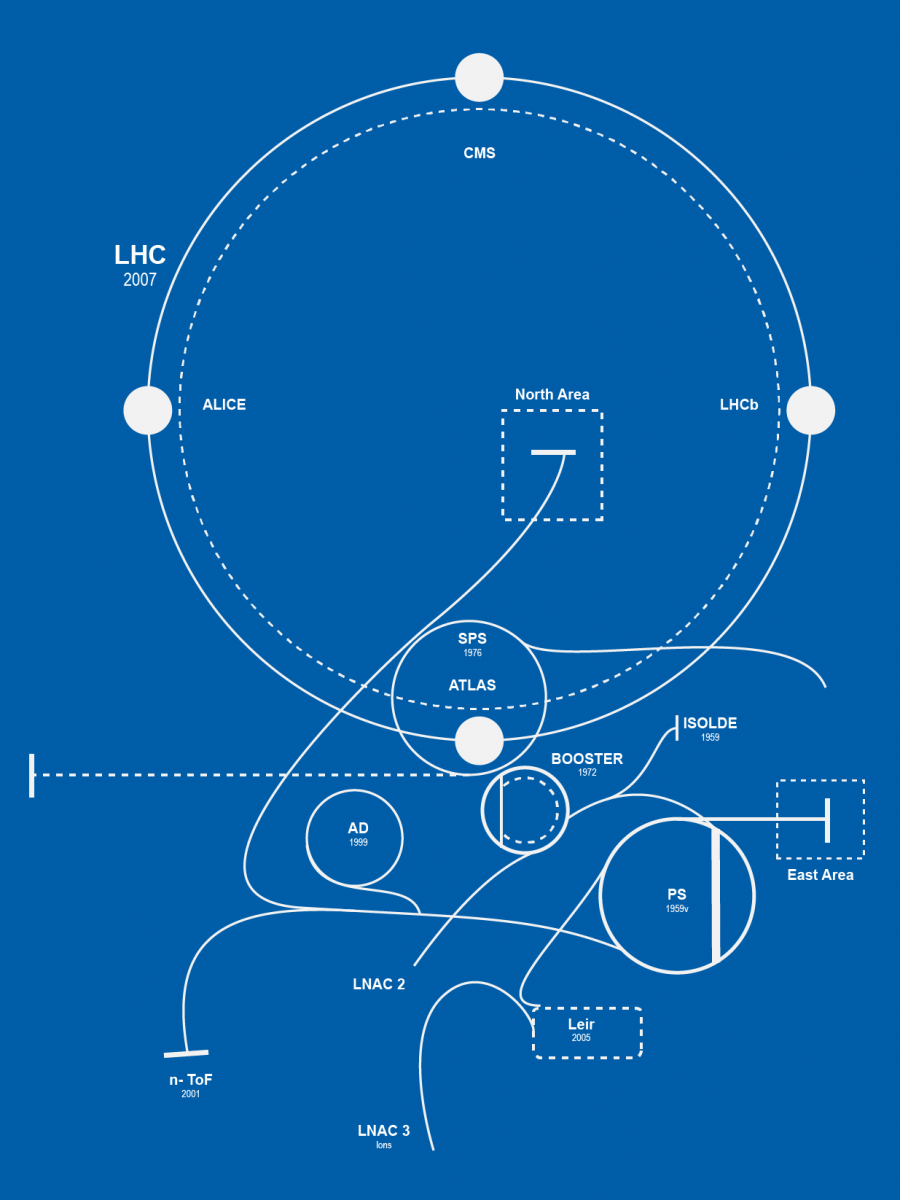New Book: "60 Years of CERN Experiments and Discoveries"
The upcoming book 60 Years of CERN Experiments and Discoveries, edited by Herwig Schopper and Luigi Di Lella traces CERN's exciting journey from its creation in the 1950s to the discovery of the Higgs particle in 2012. It presents the results that led to scientific breakthroughs in the words of the protagonists of these events, conveying their hard efforts as well as their excitement. Moreover, it also reflects the value of international collaboration in tackling the fundamental questions, which made CERN the world's leading laboratory for particle physics and paved the way for the recent discoveries of the LHC.
“For six decades, CERN has been a place where people can work together, regardless of their culture and nationality. We form a bridge between cultures by speaking a single universal language and that language is science,” said Director-General Rolf Heuer during the 60th anniversary celebrations.
Indeed, throughout its history, CERN has been a role model for scientific collaboration, demonstrating how science can unite nations and contribute to a better world. Today, it is home to more than 10,000 scientists from around the world, who work together at the international collaborations that run the experiments, while there are also many visitors who come to exchange ideas and discuss the latest developments in their fields.
Many scientific breakthroughs made at CERN have greatly advanced our understanding of the universe, including the discovery of the W and Z bosons in 1983 and the creation of antimatter atoms in 1995. The most famous, though, is the recent discovery of the elusive Higgs boson, the missing piece of the Standard Model puzzle. François Englert and Peter Higgs, the physicists that predicted its existence in the 1960s, received the 2013 Nobel Prize in Physics, as their theory was confirmed by the ATLAS and CMS experiments at the LHC.
In 2013, following three years of successful operation and interesting discoveries, the LHC was shut down for maintenance and upgrades. Now, essentially a new machine, it is going to reach unprecedented energies and allow us to expand the frontiers of scientific knowledge. In late 2014, the accelerator complex started to wake up, and in spring the physics programme will begin again at the LHC experiments. The road that lies ahead is definitely exciting: studying the Higgs particle, looking for beyond Standard Model physics and tackling unsolved mysteries such as dark matter are but a few ideas to explore.
You can browse a special interactive version of the book (with the abstracts from the various chapters) that we created for the PH newsletter.

